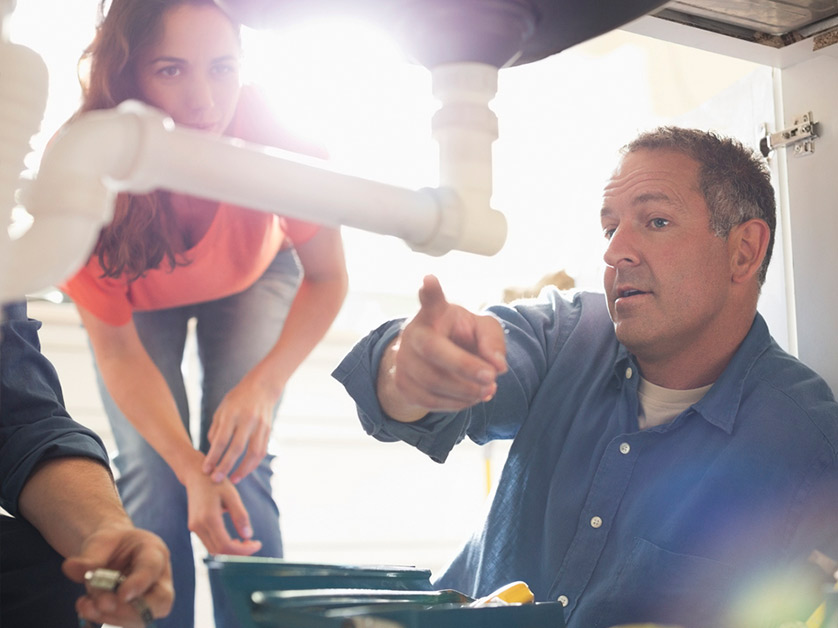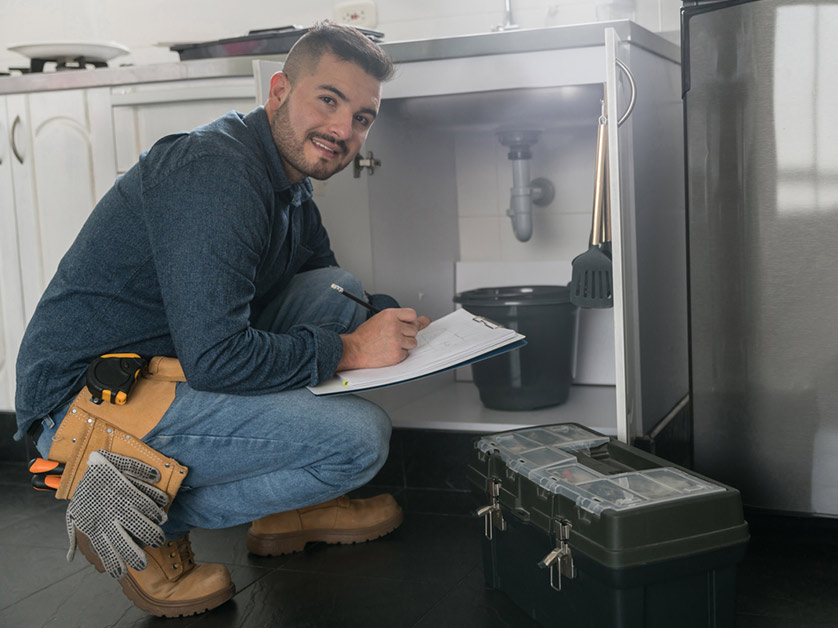-

email us
management@plumbingdoctornj.com
-

call us now
908-873-6686
Blog

20 Sep. 2024
How Long Do Common Plumbing Pipe Materials Last?
When thinking about the maintenance and longevity of your home’s plumbing system, one critical aspect to consider is the lifespan of the various types of plumbing pipes. As an experienced plumbing contractor, Plumbing Doctor explores how long different plumbing pipe materials last to help you prepare for future upgrades and maintenance, potentially saving you from unexpected expenses and headaches.
The Lifespan of Key Plumbing Materials
Several materials are commonly used in residential plumbing systems, each with its own expected lifespan. These include:
- Copper pipes are a reliable choice for plumbing due to their resistance to corrosion and their ability to withstand high temperatures. Typically, copper pipes can have a lifespan of up to 50 years. Their durability makes them a prevalent choice for water supply lines both in residential and commercial settings.
- Brass pipes have been used in plumbing for decades and are known for their excellent resistance to rust and corrosion. With a general life expectancy ranging from 40 to 70 years, brass pipes are less common in new installations but are still found in many older homes.
- Galvanized steel pipes, once a staple in home construction, have fallen out of favor due to their susceptibility to rust and corrosion. Their lifecycle ranges from 20 to 50 years, but many homeowners and plumbers choose to replace them earlier to avoid water quality issues.
- Polyvinyl chloride (PVC) pipes are celebrated for their indefinite lifespan under the right conditions. Resistant to corrosion, chemical damage, and UV radiation, PVC pipes are often used for drain lines, vent stacks, and water supply lines in both residential and commercial plumbing systems.
- Cast iron pipes, with proper maintenance, can last up to 100 years. Known for their strength and resistance to high pressure, they are ideal for sewage and wastewater systems. However, they can be susceptible to rust and corrosion over time, requiring careful monitoring and maintenance.
Factors Impacting the Lifespan of Plumbing Pipes
The material is just one factor that determines the longevity of your plumbing pipes. Water quality, such as hardness or corrosivity, can affect the interior condition of pipes. Additionally, the water pressure and the quality of the installation play crucial roles. High pressure can cause stress on pipes, leading to leaks or bursts, while poor installation can lead to weak points that fail prematurely.
How Regular Maintenance Can Prolong the Life of Your Plumbing
Keeping your plumbing system in peak condition requires regular maintenance. This includes inspecting pipes for signs of wear or damage, addressing any issues immediately, and implementing preventive measures like water softeners to combat hard water effects. Annual checks by professional plumbers can help identify potential problems early, saving you from larger, more costly repairs in the future.
Schedule Your Plumbing Maintenance Today
By taking proactive care of your plumbing system, you can ensure its longevity and functionality. Let Plumbing Doctor help you maintain a healthy, efficient plumbing system with our top-notch plumbing maintenance services. Give us a call today at (908) 873-6686 or fill out our online form to book a consultation.

13 Sep. 2024
A Comprehensive Plumbing Checklist for New Homeowners
Congratulations on purchasing your new home! While the feeling of owning a new home is unmatched, it’s crucial to ensure that your plumbing system is in perfect shape to avoid any unforeseen disruptions. Properly inspecting your plumbing system can save you from the hassle and expenses of emergency repairs later on. In this article, Plumbing Doctor presents a comprehensive plumbing checklist for new homeowners like you.
Ensure Your Water Heater Is Up to Par
The water heater is a vital component of your home’s plumbing system, especially during chilly winters. Check the age, condition, and capacity of your water heater. Most units have a lifespan of about 10 years. If yours is nearing this age, inspect it for signs of wear or corrosion. Remember, having a water heater that adequately meets your family’s needs is crucial.
Detect and Address Water Leaks Early
Leaks are not always conspicuous but can lead to significant damage if left unattended. Examine all faucets, pipes, and plumbing fixtures in your home for signs of dripping water or moisture. Pay special attention to under-sink areas, the base of toilets, and around your water heater. Minor leaks can sometimes indicate more severe problems, so addressing them promptly can prevent costly repairs.
Assess the Condition of Sewers and Pipes
Understanding what type of pipes you have (cast iron, copper, or PVC) and their condition is vital. A professional inspection can reveal if your pipes are outdated, prone to leaks, or if they comply with current codes. If your home is older than most, ensuring your sewers and pipes are in good condition is paramount.
Check for Efficient Water Flow
Water pressure and efficiency are critical for your daily comfort. Test all showers, taps, and toilets to ensure adequate pressure and that water flows freely without any backups. Low water pressure can be a symptom of bigger plumbing issues, such as pipe blockages or leaks.
Inspect Your Property’s Drainage System
Proper drainage is essential to prevent water damage to your home’s foundation and structure. Inspect the eavestroughs and downspouts for blockages that can lead to water buildup. In areas with fluctuating weather, ensuring your home’s drainage system is functional is crucial to protecting your property.
Get Familiar With Your Shutoff Valves
Knowing the location of your main water shutoff valve can be a lifesaver in emergencies, such as a burst pipe. Familiarize yourself with its location and check to ensure it’s easily accessible and operational. Additionally, identify the shutoff valves for individual fixtures to isolate areas without disrupting the water supply to the entire house.
Schedule Regular Maintenance
Regular maintenance by a qualified plumber can significantly extend the lifespan of your plumbing system and prevent emergencies. This includes periodic checks of your water heater, sump pump, septic system if you have one, and all fixtures. In places where seasonal changes can affect your plumbing system’s efficiency, regular maintenance is even more crucial.
Let Us Help You With Your Plumbing Needs
A well-maintained plumbing system is key to enjoying your new home without the worry of unexpected repairs. This comprehensive checklist is designed to guide you through inspecting and maintaining your plumbing system effectively. Remember, when in doubt, hiring a professional like Plumbing Doctor is the best way to ensure your plumbing system is in top shape. With these steps, you can save time and money and ensure your home remains a comfortable sanctuary for you and your family. For a more thorough assessment, call us at (908) 873-6686 or visit our contact page!
COVERAGE AREA:
Central New Jersey
EMAIL US:
contact@plumbingdoctornj.com
24/7 EMERGENCY CALL
908-873-6686
